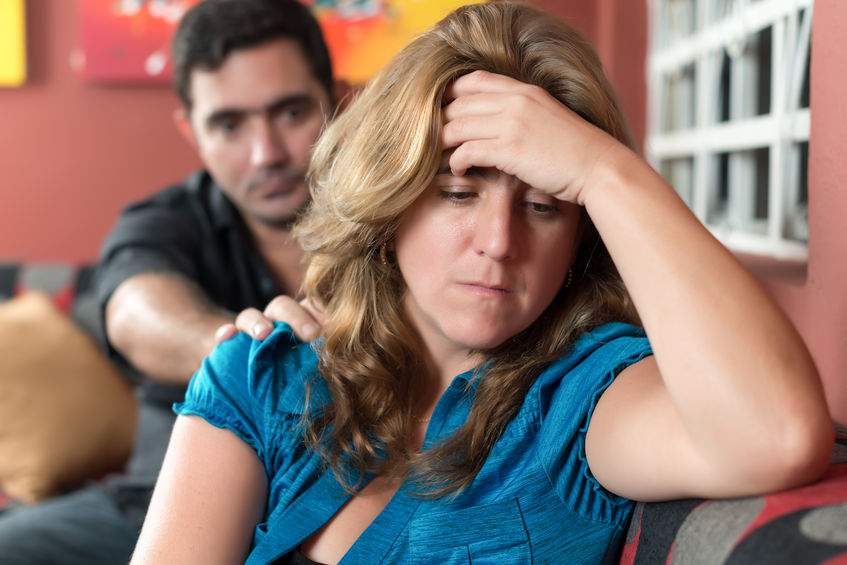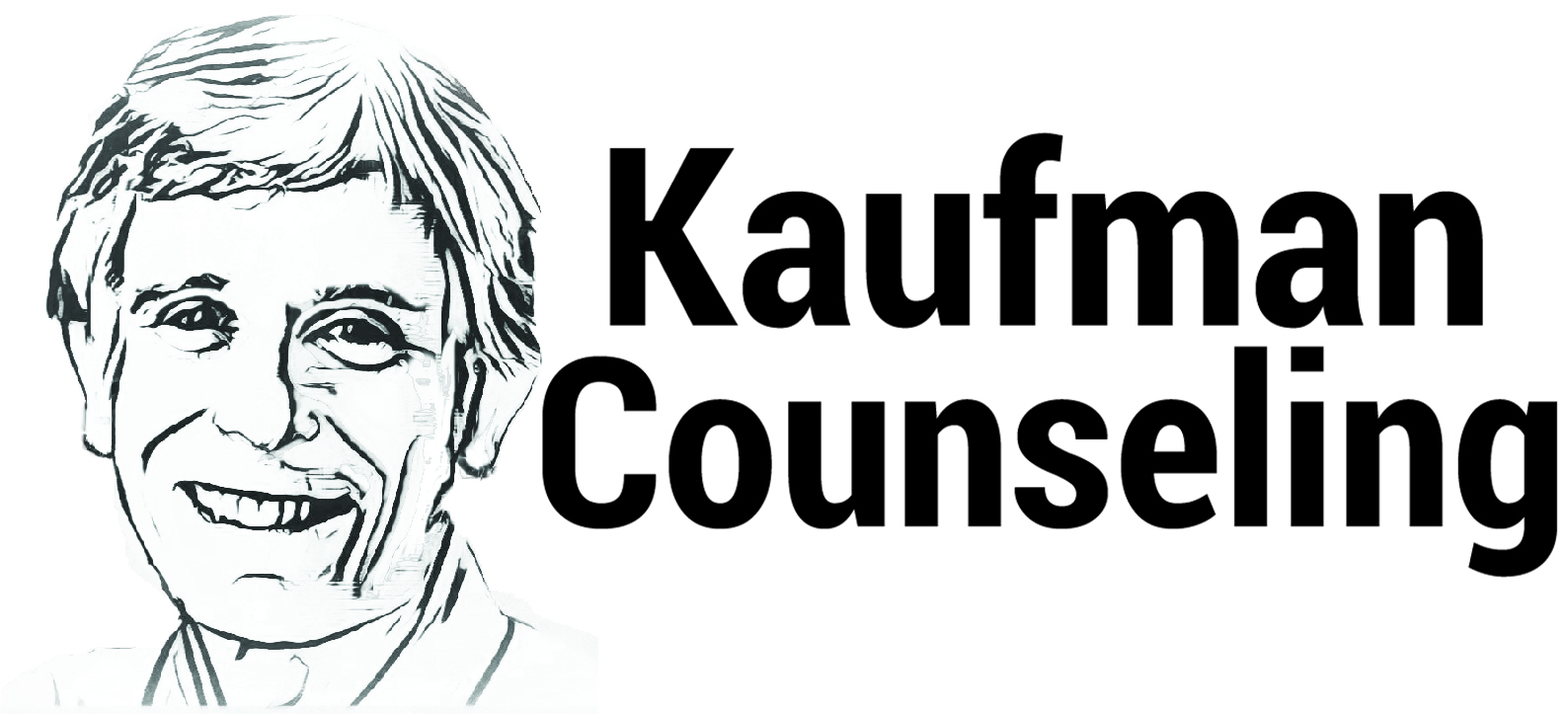Reasons Why People Delay Seeking the Services of a Couple Therapist

This article was written by Lawrence Kaufman (L.M.F.T), 561-302-0568 contact@kaufmancounseling.com
There are many reasons why people put off — sometimes for long periods of time — seeing a professional couples counselor/ therapist. Some of these reasons are more practical in nature, while others are more psychologically based. Within the psychological area, there is a range of considerations — from the most consciously perceived, to those most deeply unconscious (out of awareness; not capable of being thought about consciously). Most of the time, practical considerations are intermixed (mixed together, blended, intermingled) with the psychologically based contributing factors.
Over my years of being a couple therapist, I have been intrigued by the issue of why so many couples don’t seek out professional help sooner for their relationship problems. Even sensitively raising this issue to some people immediately raises their defenses (or protective reactions). They may experience me (or another therapist) as blaming them, being non-constructively critical, or accusing them of being negligent, psychologically deficient, or in some other way, as not being “good enough.”
A rather large percentage of partners in a committed relationship experience significant difficulties, tensions, and conflicts in these partnerships. Some of these problems have a more external focus (as a death of someone close, or conflicts over parenting) while other problems have a more internal focus (as with one of the partners having a drinking or anger management problem).
Consider the possible reasons outlined below as to why couples may have a reluctance to reaching out to a professional couple counselor/ therapist. See what resonates with, or applies to, your unique circumstances, and/or with other couples you know:
*** Financial considerations sometimes play a major part. They are already struggling to make ends meet. They don’t believe they could afford the “luxury” of seeing a (an expensive) therapist. Further, they may not see employing the services of a mental health professional as a very worthwhile investment –one that could provide sufficient rewards. To them, the disadvantages outweigh the advantages. They don’t consider paying for counseling or therapy as being a priority compared to other financial obligations they have.
*** They already feel overloaded, burdened, and over-committed with regard to their time schedule. They may feel too exhausted or drained to add another significant time and emotional commitment to their lives.
*** They don’t see view counseling/ therapy as offering sufficient value to them. They may not have high regard for psychotherapeutic services. (For example, they may know another couple who had a disappointing or failed experience with counseling.) Or, they don’t know anyone who has taken advantage of this service — so they don’t even consider this as a worthwhile option.
*** They were brought up to believe that you solve your problems on your own — without the help of a third party — especially one you have to pay a fee to. They view their difficulties together as being (eventually) solvable by using common sense, their substantial intelligence, knowledge, and problem-solving skills, and the resources they have in family members and friends. They may have read a lot of self-help books, and attended workshops, seminars, and marriage encounter or enrichment retreats in an attempt to improve and resolve their relational difficulties. In doing a cost/ benefit analysis on their situation, they are not convinced that engaging the services of a professional couple therapist would be of sufficient advantage to them.
*** Related to the above, a gender issue seems to be at play with regard to one’s inclination or disinclination to be in therapy. Even though we are now in the 21st century, women are still more likely overall to see professional counseling/ psychotherapy as a beneficial resource to help them with their relationship problems. As a generalization, women are more likely than men to be open and motivated to talk about their personal and relational problems and communicate about their emotions. Men, in general, are less enthusiastic about what was historically called “the talking cure,” but now could better be referred to as “the relationship cure.” Men are more likely to want to problem solve and relate on an action oriented and/or cognitive (intellectual), rational, and logical basis – rather than focus on their feelings (which they associate with feminine concerns).
On the flip side, some men — as well as some women too — might be more open to entering couple therapy than individual therapy. The reason for this is that, at least initially, the more reluctant partner (that is, the partner less enthusiastic about seeing a therapist) can enter couple therapy with the belief that their partner is the one who (predominantly) has the problems in the relationship and needs to change — not him (or her). Thus, entering couple therapy, — versus (in contrast to) individual therapy — might, for some, be experienced as a way to “save face.”
*** They previously have seen a clergyperson, coach, or another human services professional not specifically trained or experienced in conducting couple therapy. They may not (adequately, sufficiently) distinguish between professionally trained persons in the helping professions from ones who are not. As a result, if they had not previously been successful in finding the help they were seeking and needing, they may falsely conclude that this sort of help is unavailable.
*** They may be afraid of, or not be ready to face the unpleasant (or even devastating) “emotional reality” that their relationship can’t or won’t work out. For example, they may believe, or be convinced that that their or their partner’s problems (as with an alcohol or other drug problem, sex addiction, compulsive gambling, eating disorder, personality disorder, PTSD [post-traumatic stress disorder], longstanding pattern of lying or dishonesty, chronic suicidality, etc.) are unresolvable.
*** They may have heard about someone else, or others, who saw a professional couple therapist but didn’t have a particularly good, positive, or successful experience or outcome.
*** They may not believe that a couple therapist could help them. They may have previously had a bad (not successful or helpful) experience with a couple therapist. They may not realize that therapists have a wide diversity in their training, experience, theoretical orientations (that is, the predominant theoretical approaches they use as a framework in which to help couples), and professional competence. In addition, different therapists can have very different personalities. The partners may not realize enough about the importance of finding a fit or match with the personality or style of the therapist they choose to work with.
*** They have negative expectations of what the therapist might say and recommend to them. They may anticipate judgment, criticism, blaming, shaming, ridiculing, and/ or scolding, etc. — as perhaps one of their parents had treated them previously. (This is called a “transference” reaction. They expect and anticipate that the therapist will relate to them as a significant person in their past related to them. That is, their past experiences color or affect their expectations in the present, and in the future.) They defensively fear that the therapist will try to control them, tell them what to do, prescribe homework to them they didn’t want to do or have time to do, side with their partner against them, like their partner better than them, or disappoint them by not being particularly helpful. Most importantly, perhaps, they may fear that the therapist will recommend that they split up (separate, divorce, break up) – or stay together. This can be very anxiety provoking, disturbing, and unsettling to them.
*** They believe that being in individual therapy is sufficient to help them with their relationship problems, difficulties, and challenges. They are not aware that people who are only in individual therapy are more likely to decide to end their romantic relationship than those who have their partner participate in couple therapy. It is generally easier to convince an individual therapist than a couple therapist that your partner is largely or predominantly at fault for the (large majority of the) problems in your relationship. I suspect that many primary relationships dissolve or end prematurely and unnecessarily because one or both partners find it easier or less painful (at least in the short run) to blame or reject their partner than to accept their fuller responsibilities in contributing to and sustaining the problems in their relationship.
*** Sometimes one of the partners finds a particular topic, problem, or area of concern so anxiety, embarrassment, or shame provoking, and difficult to talk about — if not think about — that he or she wants to avoid it as much as possible. This is a relationship concern that would be very difficult for the partner to even discuss in confidence with an individual therapist. To bring this issue up with one’s “intimate” partner present, in front of a couple therapist, might feel (almost) unbearable and intolerable.
The area of sexuality stands out in this context. Let’s say that one of the partners expects to be embarrassed, humiliated, devastated, judged, or rejected by talking openly about his or her homosexual or heterosexual activities, actions, or fantasies. Disclosure of one of these secrets might lead to the end, or feared end, of the relationship. Think of how difficult it might be for a partner to disclose about and discuss about the following: an affair, an “addiction” to Internet pornography or visiting prostitutes, strip clubs, or bath houses; having a paraphilia (a preference for, or addiction to, unusual sexual practices), or sexual fantasies the partner would (probably) find unacceptable. Under these potentially difficult circumstances, a distancing, withdrawing, threatened, and avoiding partner would offer a number of reasons, rationales, rationalizations, and excuses to “get out of” going to a couple therapist.
*** On still a deeper psychological level, the prospect (or anticipation) of being in couple therapy may induce (influence, cause, or bring about) one or both of the partners’ (largely unconscious) fears of intimacy and closeness. For example, due to previous traumatic attachment relationships in their life — especially in childhood — they may be conditioned (or neurologically wired or programmed) to expect to become retraumatized if they should again become very vulnerable with, dependent on, or deeply love another. If this pertains (relates) to their situation, they may find it less painful to end their current relationship than to explore (or “dig” into) the underlying, deeper conflicts, personality deficits, relational patterns, or other issues that are so frightening for them to face.


